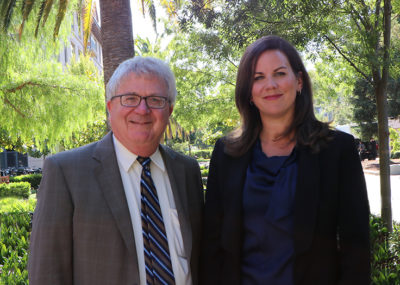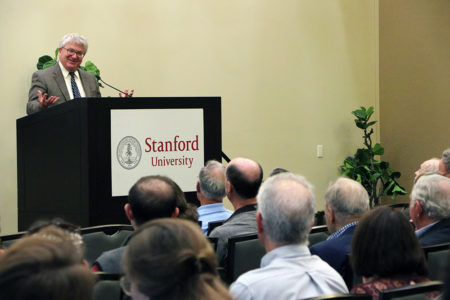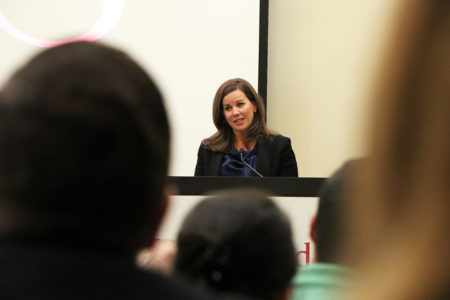Constitution Day: Precedent in American History
America’s birthday is commonly regarded as July 4th, and despite Independence Day’s popularity as the embodiment of American patriotism, another holiday deserves the attention of all American citizens: Constitution Day.

When the United States won its independence, the country was bound in a loose confederacy with a weak federal government, as dictated by the Articles of Confederation. It soon became evident that the young country would need a stronger central government. To remedy this situation, Alexander Hamilton, James Madison and other early American political figures proposed a meeting to discuss, debate and revise the Articles of Confederation. Instead of a simple revision, however, the framers created an entirely new document. On September 17, 1787, thirty-nine delegates signed the U.S. Constitution, making it the oldest functioning Constitution in the world. Previously known as Citizenship Day, September 17 became an official federal holiday called Constitution Day in 2004.
All educational institutions that receive federal funds hold a Constitution Day educational program each year on or near September 17th. For this year’s celebration, the Stanford Constitutional Law Center (Con Law Center) at Stanford Law School (SLS) invited SLS alum Judge Britt C. Grant of the U.S. Court of Appeals for the 11th Circuit. Grant’s lecture, “The Paradox of Precedent,” was attended by a full house of Stanford community members and quite a few Stanford Law School students, including newly-arrived 1Ls, hoping to gain insight from a prominent member of an appellate court.
The week after Constitution Day is important, too

During his introduction of the event, Professor McConnell took the opportunity to remind the audience that the lecture was taking place a week after Constitution Day, still a critical time in the life of the early U.S. Constitution as it was sent to the U.S. Congress for debate, published in newspapers, printed in English and in German and made available to citizens to read during that week. “From the beginning, the Constitution was made of the people and for the people,” said McConnell. “This is not an elite document, it is meant to be read and understood by all citizens and these lectures are a way for us to continue the conversation.”
Grant started her lecture with a short walk down memory lane as she talked about being a student at SLS. Her first class at the law school was taught by Dean Jenny Martinez. She was also one of the first SLS students to be involved with the Stanford Constitutional Law Center and was at the “founding” of McConnell’s teaching career at SLS as she was in the first class that he taught at the school when he was a circuit judge on the United States Court of Appeals for the Tenth Circuit.
The paradox of precedent
Grant focused her lecture on precedent and stare decisis, two similar concepts that have been front and center in recent legal and political debates. Precedent in the law refers to a legal case that establishes a principle or rule. That principle or rule is then used by the court when deciding later cases with similar issues or facts. Stare decisis is a legal doctrine that obligates courts to follow historical cases, or precedent, when making a ruling on a similar case.
“As a circuit court judge, it is my job to follow precedent and apply the holding by other previous courts. I need to figure out what the precedent is and apply it to current cases that are in front of me,” said Grant.
“The ‘paradox of precedent,’ the title of my speech really does get at the American approach to precedent,” said Grant. “There is tension that is inherent in how legal thinkers approach precedent. On the one hand, we follow and respect precedent, that’s an unshakable foundation of our legal tradition. On the other hand, we need to get it right. The Constitution and statutes have meaning and it is important for judges to offer that meaning correctly in our decisions. An incorrect legal interpretation is just as incorrect if someone prior came up with it or if I came up with it. These competing goals of constitutional and statutory meaning on one hand, and stability on the other, can be difficult imperatives to square.”
Click here to view Grant’s full speech as well as McConnell’s introduction.
Nurturing debate and learning

Grant also reminded the audience about why they were there, in a lecture hall, listening to an expert discuss the Constitution. “What a wonderful environment for debate and learning here at Stanford Law,” said Grant. She recalled many passionate debates about war and peace, the rule of law, policy and practice, with her fellow students and faculty, and then going for a beer or pizza right after a debate with the very people with whom she had just argued.
“The ability for Stanford Law students to be able to talk and reason with one another about topics that fundamentally divided us, while still having confidence in one another’s good faith, was extraordinary. I hope that continues for students here and, for me, I like to focus on not what divides us but on what we have in common, a respect for the rule of law. I encourage all of you here, both students and members of the broader community, to nurture the kind of atmosphere that leads to honest, respectful debate and allows for everyone to learn and grow.”
About Judge Britt C. Grant
Britt C. Grant serves as a Circuit Judge on the U.S. Court of Appeals for the 11th Circuit. Judge Grant was appointed to the federal bench in August 2018 after serving as a Justice on the Supreme Court of Georgia. Prior to her appointment to the bench, she served for two years as the Solicitor General of Georgia and, before that, as counsel for legal policy to the Attorney General of Georgia. Earlier in her career, Justice Grant practiced in the Washington, D.C., office of Kirkland & Ellis, where she focused on complex commercial litigation and appellate matters. Upon graduation from law school, Justice Grant served as a law clerk to then-Judge Brett M. Kavanaugh of the U.S. Court of Appeals for the District of Columbia Circuit. She earned her J.D., with distinction, from Stanford Law School, where she served as managing editor of the Stanford Journal of International Law and as senior articles editor of the Stanford Law and Policy Review. She was also the Co-Founder and Co-President of the Stanford National Security and the Law Society, and the President of the Stanford Law chapter of the Federalist Society. Before enrolling in law school, Justice Grant served in The White House as Deputy Associate Director of the Office of Cabinet Affairs and earlier as Assistant to the Director in the Domestic Policy Council and USA Freedom Corps. She also served as Legislative Correspondent and Communications Director to Georgia Congressman Nathan Deal. Judge Grant earned her B.A., summa cum laude, from Wake Forest University, where she was inducted into Phi Beta Kappa. She now lives in Atlanta, Georgia with her husband and three children.
About the Stanford Constitutional Law Center
The Stanford Constitutional Law Center focuses particularly on the separation and scope of legislative, executive, and judicial powers; the structure of constitutional democracy; the freedoms of speech, press, and religion; and the right of privacy, including the privacy of personal data in a digital world. Founded in 2006 by former Dean Kathleen Sullivan, the Constitutional Law Center is currently led by Faculty Director Michael W. McConnell, Richard and Frances Mallery Professor of Law.
About Stanford Law School
Stanford Law School is one of the nation’s leading institutions for legal scholarship and education. Its alumni are among the most influential decision makers in law, politics, business, and high technology. Faculty members argue before the Supreme Court, testify before Congress, produce outstanding legal scholarship and empirical analysis, and contribute regularly to the nation’s press as legal and policy experts. Stanford Law School has established a model for legal education that provides rigorous interdisciplinary training, hands-on experience, global perspective, and focus on public service, spearheading a movement for change.
